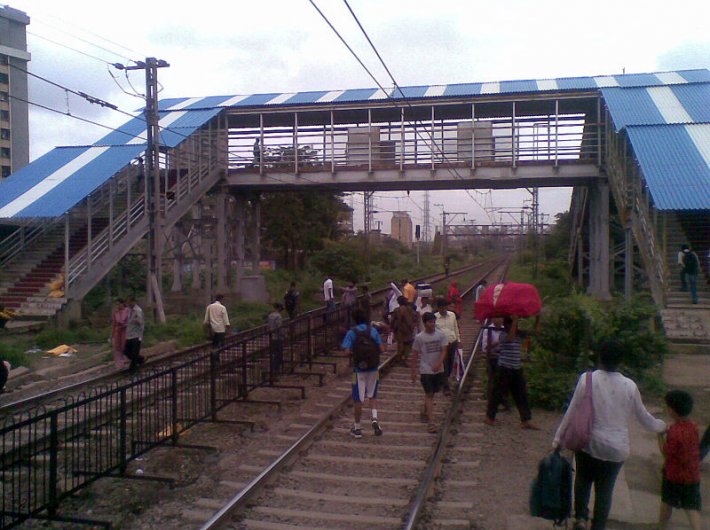Audit review of records of selected stations revealed that covered FOBs of the prescribed size had not been provided at 18 stations of A1 category and at six stations of A category
The Comptroller and Auditor General (CAG), in separate reports, had focused on railway foot over bridges (FOB) and called for building more FOBs of prescribed size.
As many as 22 people were crushed to death in a stampede on an FOB in Mumbai on Friday.
The CAG in a report described FOB as an important passenger amenity and passenger safety item, provided to facilitate movement of passengers from outside the station to any platform and from one platform to another.
“FOBs ensure safety by preventing trespassing of railway track by passenger. FOB of six meter width with cover were required to be provided at stations of A1 and A category, whereas these were required to be provided at all stations of B and D category during doubling/ gauge conversion works wherever they are not available,” said the report for the year ended March 2015.
Audit review of records of selected stations revealed that covered FOBs of the prescribed size had not been provided at 18 stations of A1 category and at six stations (CR-Lonavala, Sainagar Shirdi; NCRBanda, Aligarh, Etawah, Agra Fort) of A category.
FOBs had not been provided at 10 stations (CR-5 and one each in ER, NR, NCR NER and NFR) of B category and 32 stations (CR-7, ECR-2, NR-1, NCR-5, NWR-3, NER-4, NFR-4, SECR-1, SWR-4 and WR-1) of D category.
Another CAG report, this time specifically on suburban train services, said that Indian Railways in its Citizen's Charter made a commitment to provide safe and dependable train services to passengers.
The report submitted in February 2012 stated that out of the 15,000 deaths every year on the Railway system, about 6000 deaths are on Mumbai suburban system only. Such large numbers of deaths were mainly attributed to unlawful trespassing. The report further stated that trespassing takes place mainly on account of lack of barricading, fencing, inadequate number of pedestrian overbridges and reluctance to replace pedestrian level crossings with foot over bridges (FOBs) etc.
“Review of records to ascertain reasons for fatalities in CR, ER, SER, SCR, SR, WR and MR, Kolkata during the period January 2010 to December 2014, out of 33445 deaths, 19868 deaths (59 percent) occurred due to line crossing / trespassing only. 17638 (52.74 per cent) death cases occurred in Mumbai suburban sections (both CR and WR) due to various reasons,” said the report.
It may be seen that in ER, 1014 passengers died due to hitting/crashing with poles. While 4885 deaths cases (15 per cent) out of 33445 occurred due to falling from running trains, 4002 deaths (82 per cent) occurred in Mumbai suburban section alone.
The CAG in the report referred to lack of foot-over bridges of the prescribed size at suburban stations.
It recommended that such passenger amenities should be prioritised in a timebound manner. The audit also recommended expediting implementation of integrated security systems at all identified sensitive stations and providing other essential security measures such as preventing unauthorised entry at important stations.
The Comptroller and Auditor General of India submitted the report on the suburban train services in Indian Railways, between 2010-11 and 2014-15, on July 26, 2016. Suburban trains are passenger trains that cover short distances of up to 150 km. These trains help in facilitating movement of passengers within cities and suburbs. Suburban train services are provided in seven zonal Railways and spread over 1,763 km., providing services to the cities of Mumbai, Kolkata, Chennai, and Secunderabad.

